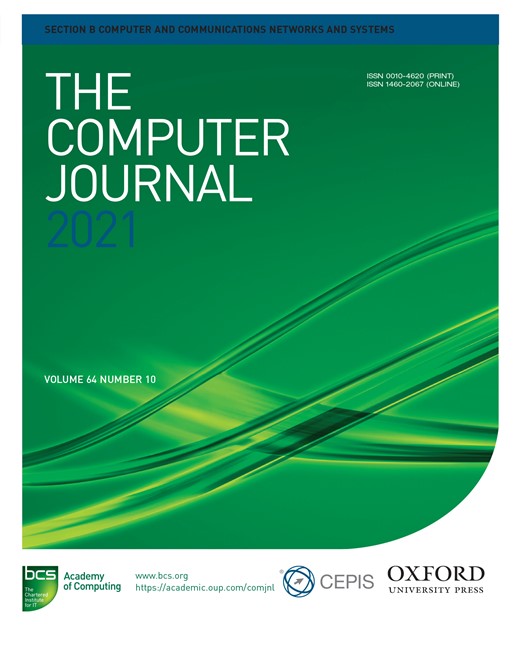-
Views
-
Cite
Cite
Rama Al-Share, Mohammad Shurman, Abdallah Alma’aitah, A Collaborative Learning-Based Algorithm for Task Offloading in UAV-Aided Wireless Sensor Networks, The Computer Journal, Volume 64, Issue 10, October 2021, Pages 1575–1583, https://doi.org/10.1093/comjnl/bxab100
Close - Share Icon Share
Abstract
Recently, unmanned aerial vehicles (UAVs) have emerged to enhance data processing, network monitoring, disaster management and other useful applications in many different networks. Due to their flexibility, cost efficiency and powerful capabilities, combining these UAVs with the existing wireless sensor networks (WSNs) could improve network performance and enhance the network lifetime in such networks. In this research, we propose a task offloading mechanism in UAV-aided WSN by implementing a utility-based learning collaborative algorithm that will enhance the service satisfaction rate, taking into account the delay requirements of the submitted tasks. The proposed learning algorithm predicts the queuing delays of all UAVs instead of having a global overview of the system, which reduces the communication overhead in the network. The simulation results showed the effectiveness of our proposed work in terms of service satisfaction ratio compared with the non-collaborative algorithm that only processes the task locally in the WSN cluster.




